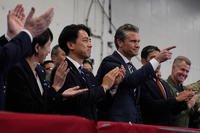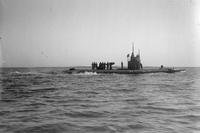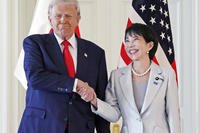In recognition of efforts to form and nurture relationships with a wide array of nations in the region, the Pentagon is renaming its oldest and largest combatant command, Defense Secretary Jim Mattis said Wednesday.
U.S. Pacific Command will be called U.S. Indo-Pacific Command moving forward, he said.
Speaking at the Pearl Harbor Memorial in Hawaii as Adm. Phil Davidson replaced Adm. Harry Harris as head of the command, Mattis spoke of the commitment of the United States not only to the larger nations of the Western Pacific, but also to the nations bordering the Indian Ocean.
"Our 2018 National Defense Strategy is the first of its kind in a decade, and it acknowledges ... America's resolve and lasting commitment to the Indo-Pacific," Mattis said. " ... America continues to invest vigorously in Indo-Pacific stability, bolstering the free and open rules-based international order that has enabled this region to grow and to thrive for over 70 years."
Mattis made repeated references to respecting the sovereignty of individual nations, a key contention in the region amid Chinese land grabs and contested territorial claims.
Military Times first reported earlier this month that the Pentagon was considering renaming PACOM.
A Pentagon spokesman, Army Col. Rob Manning, confirmed the change was under consideration, adding that the scope of the region and responsibilities of its commander would not change even if the name did.
Evidence of the Pentagon's efforts to engage with other nations in the region can be seen in military exercises and other partnered engagement. On May 23, representatives from the Indian Army, among other international militaries, participated in the Pacific Amphibious Leaders Symposium, hosted by Marine Corps Forces Pacific.
In January, representatives of the Indian Navy traveled to Pearl Harbor to meet with U.S. 7th Fleet leadership for an annual executive steering group forum.
"Relationships with our Indian Ocean and Pacific allies and partners have proven critical in maintaining regional stability," Mattis said Wednesday. "We stand by our partners and support their sovereign decisions, because all nations large and small are essential to the region to sustain stability in ocean areas critical to maintaining peace."
Mattis credited Harris, who has led PACOM since May 2015, for steering "a steady ship amid often-shifting ocean currents."
"You have demonstrated that the United States takes no relationship for granted," Mattis said.
Davidson, who most recently commanded U.S. Fleet Forces Command, has previous experience in the Pacific, having served multiple tours with the U.S. Pacific Fleet Staff during his 36-year career, according to his official biography.
-- Hope Hodge Seck can be reached at hope.seck@military.com. Follow her on Twitter at @HopeSeck.













